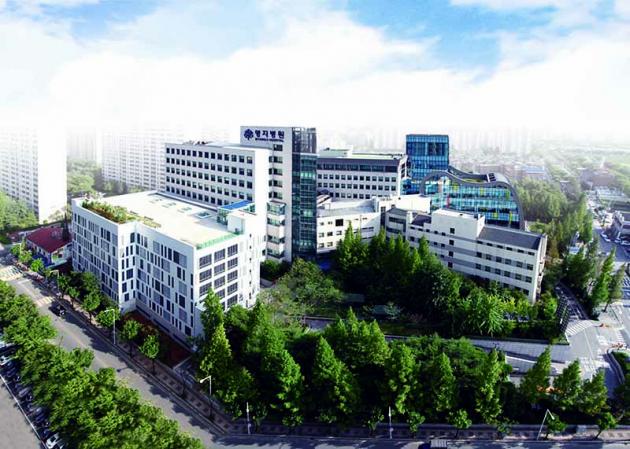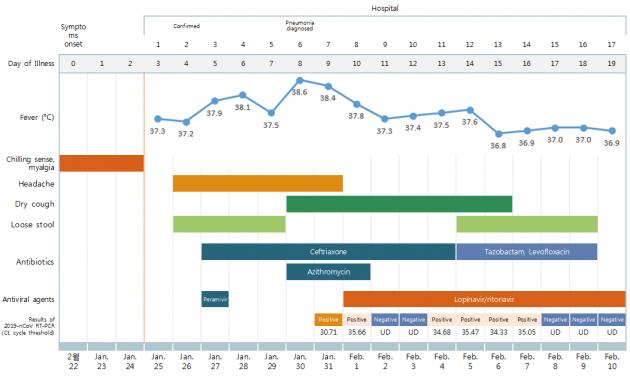A medical team at Myongji Hospital said Wednesday that an HIV combination drug of lopinavir plus ritonavir showed effectiveness in treating the third confirmed patient with the new coronavirus (COVID-19) infection. The hospital discharged the patient on the same day.

According to the hospital report, a 54-year-old Korean male worker living in Wuhan, China, entered Korea on Jan. 20 and felt the first symptoms such as chills and muscle pain on Jan. 22. After contacting a public health center on Jan. 25, he was quarantined in a negative pressure room at Myongji Hospital and confirmed to have COVID-19 infection on Jan. 26 via pan-coronavirus conventional polymerase chain reaction (PCR) assay.
The patient transmitted the virus to his friend at a restaurant on the first day of symptoms, and the friend (confirmed on Jan. 30) spread the virus to his spouse and son (confirmed on Jan. 31) and a church member (confirmed on Feb. 6). Those were the first case of tertiary transmission of the new coronavirus outside China.
On admission, the third confirmed patient had no respiratory symptoms.
He developed a fever and dry cough on the fifth day and seventh day of hospitalization but had no serious respiratory symptoms, such as shortness of breath, productive sputum, or chest pain, the medical team said.
The team could not measure the initial viral load because real-time PCR was not available when the patient was diagnosed. The team measured viral loads using qRT-PCR since Jan. 31.
On the seventh day of hospitalization (ninth day of illness), the medical team started administering the combo drug of lopinavir plus ritonavir, sold under brand name Kaletra by AbbVie. Two tablets (lopinavir 200mg/ritonavir 50mg) were given per oral bid.
“Interestingly, from the next day of lopinavir/ritonavir administration, β-coronavirus viral load started to decrease, and no detectable or little coronavirus titers have been observed since then,” the report said.
However, the report noted that it was also possible that the decreased load of the new coronavirus resulted from the natural course of healing process rather than the administration of lopinavir/ritonavir or both.

Considering the reduced viral loads and improved clinical symptoms after using the HIV combo drug, the team recommended the use of lopinavir/ritonavir for the relatively high-risk group of the new coronavirus-infected pneumonia (old age patients or patients with underlying diseases) from the early stage.
“We need more evidence to prove the clinical efficacy of lopinavir/ritonavir based on a well-controlled clinical trial,” the report added.
The patient complained of psychiatric symptoms such as depression, insomnia, and suicidal thoughts after isolation, the report noted. Despite mild symptoms of the new coronavirus infection, “isolation in the negative pressure room during treatment might be one of the reasons provoking psychological symptoms,” it said.
Myongji Hospital said it provided counseling and related medications under the consult of a psychiatrist.
The medical team, led by Dr. Lim Jae-gyun, a professor of the Department of Laboratory Medicine at Myongji Hospital, wrote a paper detailing the treatment process of the third patient, including the therapies they used.
The study was published in the Journal of Korean Medical Science (JKMS), under the title, "Case of the Index Patient Who Caused Tertiary Transmission of COVID-19 Infection in Korea: the Application of Lopinavir/Ritonavir for the Treatment of COVID-19 Infected Pneumonia Monitored by Quantitative RT-PCR."

